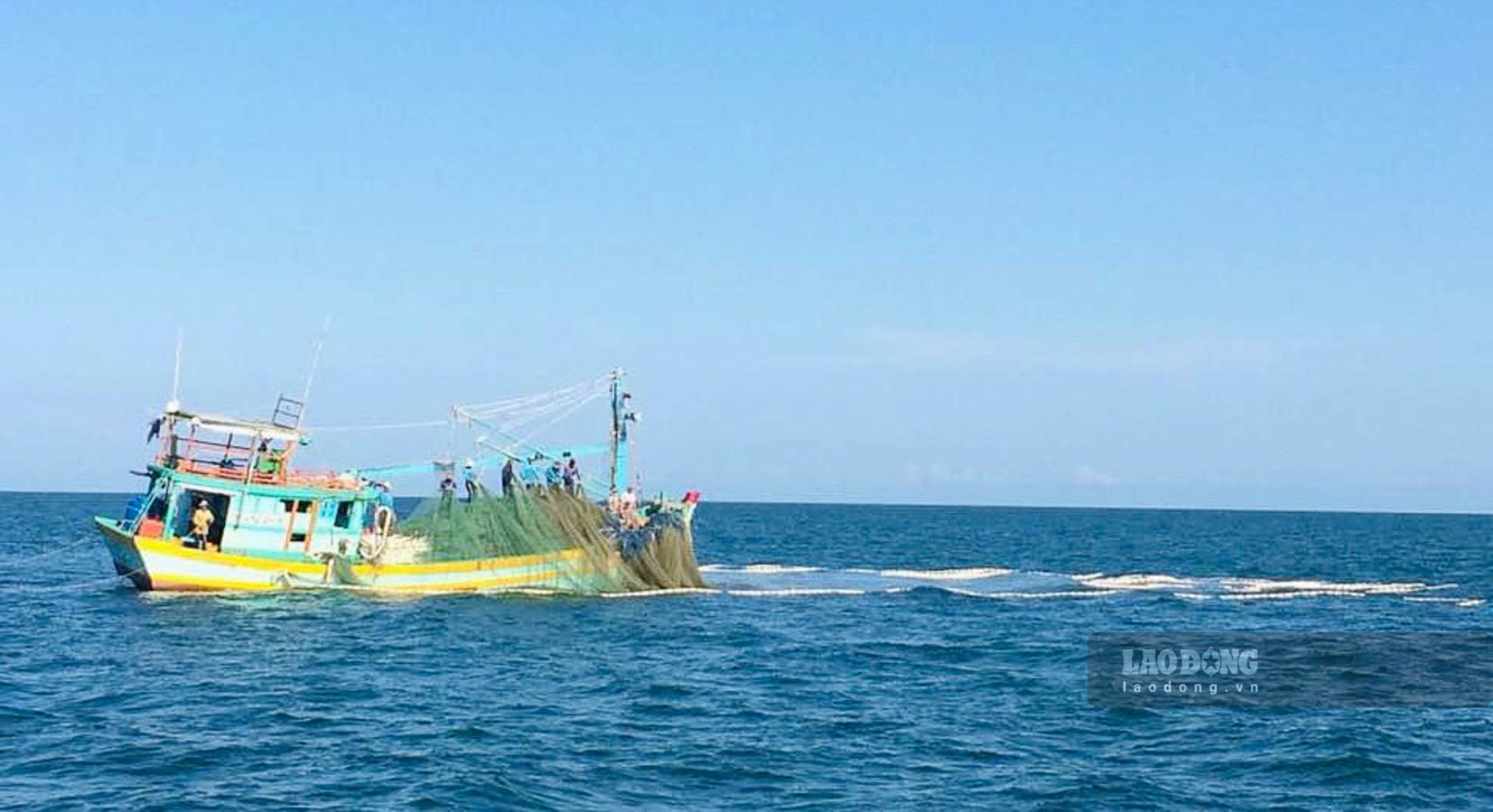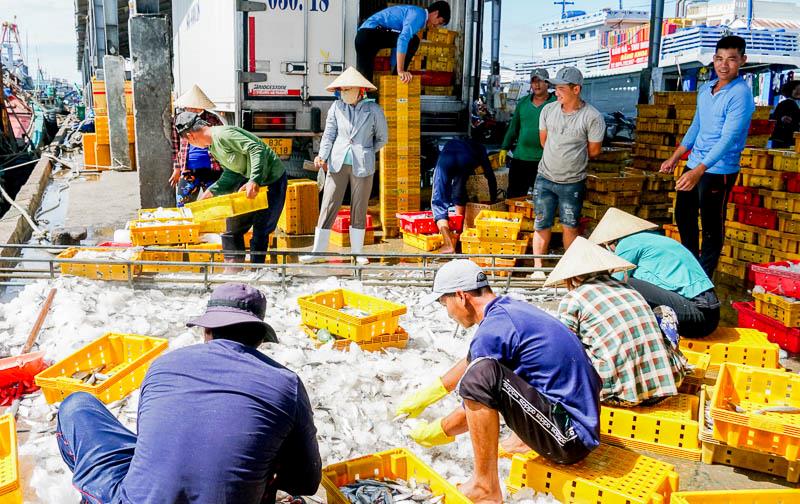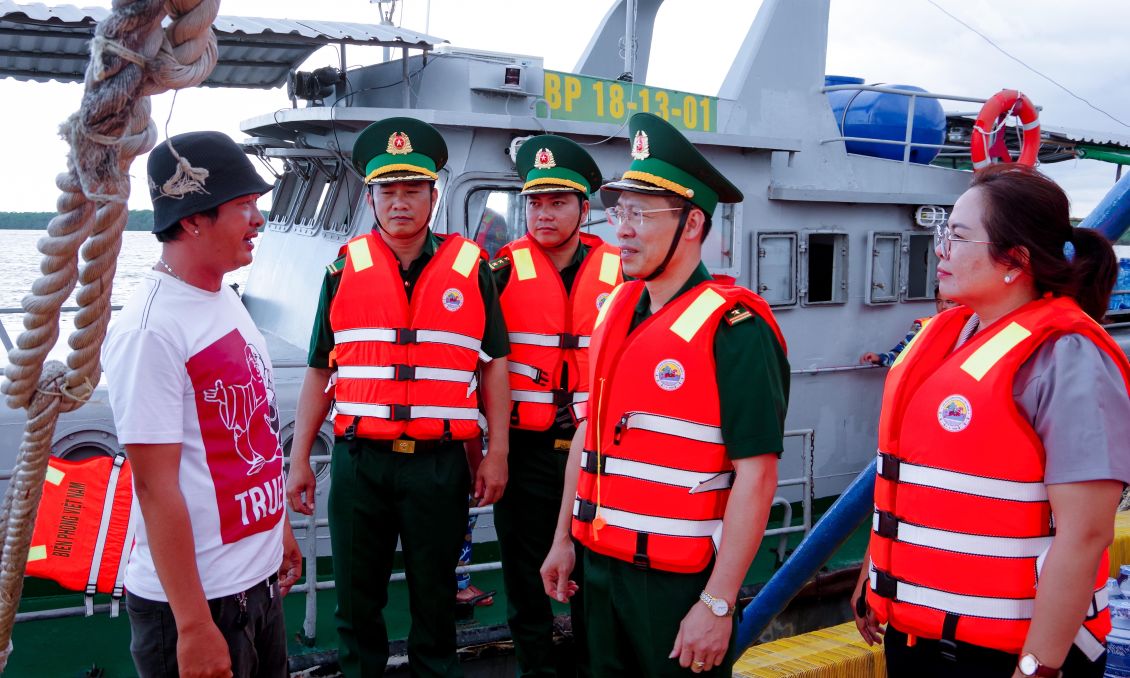3 fishing boats of fisherman Nguyen Hoang Tam in Tran De commune (Can Tho city) have been departing for about 10 days now. This trip is expected to last more than 1 month. To prepare for the rough seas, he has fully equipped each crew member with life jackets and life buoys; replaced damaged equipment; installed additional large rafts at the bow of the ship; checked satellite phones to ensure communication with the mainland and authorities when needed to respond to storms.
"Exploitation during the rainy and stormy season is the most severe of the year. Therefore, we regularly update weather information. The fishing village near Con Dao, if the weather is bad, will take ships to the island to take shelter safely, waiting for the sea to calm down before continuing to go to sea," said Mr. Tam.

Similarly, for ships operating near the shore, ensuring safety during rough seas is also of interest to vehicle owners. For example, at the My Thanh Seafood Catching Association, Vinh Hai commune, although many vessels only exploit during the day, fishermen are still fully equipped with safety equipment and closely monitor weather forecast information.
Mr. Ly Hoang Cho, Chairman of the Association, said that border guards and local authorities regularly propagate to proactively prevent, quickly return to shore during storms and absolutely not go to sea during times of danger.
For small-capacity vessels, many fishermen choose to anchor to ensure safety. Ms. Nguyen Thu Thao, a fisherman in Tran De commune (Can Tho city), said that for more than a month now, thunderstorms have caused the boat to go out to sea for a few days and then return. In the most recent trip, the family only exploited a few hundred seafood fish sauce.
"This year, there are more thunderstorms, affecting output, but still giving priority to the safety of people and vehicles. It is expected that in 1-2 months, when the weather is favorable, they will go to sea to prepare goods for Tet," said Ms. Thao.
Fisherman Nguyen Quoc Dung in Cu Lao Dung commune (Can Tho city) shared that his family's small-capacity boat cannot risk going to sea in conditions of big waves and strong winds. "Constant sea rough seas cause reduced income, making life difficult, but safety is still a top priority," said Mr. Dung.

According to the Department of Fisheries and Fisheries Control of Can Tho City, to ensure safety during the rainy and stormy season, Border Guard units, Tran De Fishing Port Management Board and local authorities have coordinated to inspect and only allow ships to depart when they are equipped with safety equipment; regularly patrol, remind, and handle violations; require all ship owners to fully equip life buoys and communication equipment.
Currently, Can Tho City has 797 registered fishing vessels with a total capacity of 210,377 CV, of which 347 vessels are 15 meters or more, 58 vessels provide fishing logistics services. 100% of vessels have been granted a fishing license, updating data on the Vnfishbase and VNeID systems. By the end of 2024, the locality had completed issuing documents to all 136 "3 no" fishing vessels. 100% of ships with a distance of 15 meters or more have installed voyage monitoring devices. From the beginning of 2023 to now, no ship has crossed the illegal fishing border in foreign waters.

Management at the port is tightened. The Tran De Fishing Port Management Board has monitored 1,410 ships unloading seafood (209:61 tons) and coordinated with the IUU fishing control team to inspect 3,267 ships entering and leaving the port 24/24 hours. From the beginning of 2025 to now, 102 certificates of origin of exploited aquatic materials have been issued (3,049 tons) and 111 certificates of aquatic origin (1 101 tons), of which 80 certificates (565.4 tons) have been exported to Europe. At the same time, deploy electronic logs for 40 fishing vessels from 15 meters or more.
